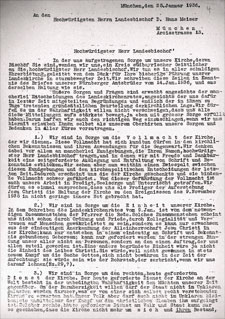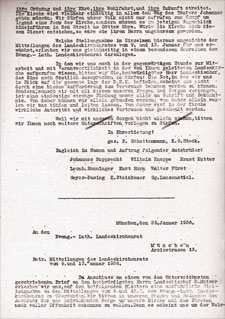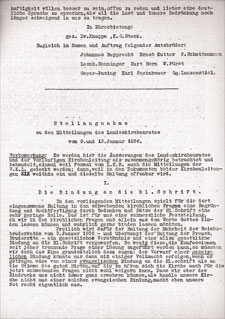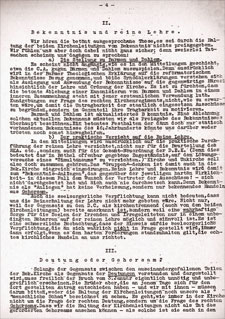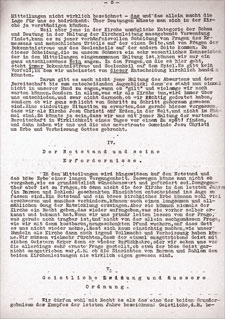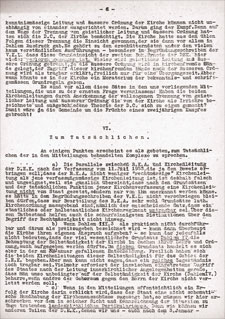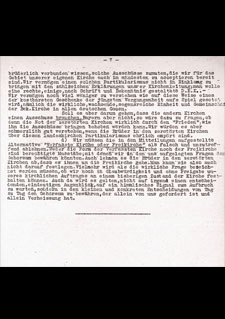Pastors: Protesting the Church Government’s Course
Disputes about the so-called church committees, which Reich Minister of Church Affairs Hanns Kerrl (1887-1941) had appointed as church governments in the Reich Church and in numerous regional churches since the fall of 1935, induced a group of Southern Bavarian pastors to sharply criticize the Bavarian church government’s course in January of 1936. Although the Bavarian church government rejected such a committee for its own regional church, it nevertheless approved of the appointment of church committees in the destroyed regional churches controlled by the German Christians. This caused serious conflicts with these churches’ Councils of Brethren, which laid claim to the church government for themselves and denied the state’s right to appoint church governments.
These conflicts threatened the unity of Confessing Church and also split its supreme governing body, the First Provisional Church Government, the majority of which was willing to work conditionally together with the church committees appointed by the state. A rift between the Councils of Brethren in the destroyed churches and the bishops of the intact regional churches of Bavaria, Hannover and Württemberg occurred in early January of 1936: The National Council of Brethren resolved in a crucial vote of seventeen to eleven that recognition of the church committees was irreconcilable with the Theological Declaration of Barmen. The First Provisional Church Government had been de facto dismissed.
The Bavarian church government informed clergy and religion teachers about these events in two circulars of January 9 and 13, 1936, setting forth the reasons for its approval of the church committees. It additionally explained that there would be no more peace and order without the state’s intervention in the church. Moreover, the church committees had developed positively so far. It assigned the blame for the breach in the National Council of Brethren to the Councils of Brethren, which it asserted wanted to erect a fully new church on the basis of the confessional synods’ resolutions, most notably the Theological Declaration of Barmen, in which the differences between the Lutheran and Reformed confession would be leveled unacceptably.
In two letters addressed to Regional Bishop Hans Meiser (1881-1956) and the regional consistory, the Southern Bavarian pastors, which had been shaped by Karl Barth’s (1886-1968) theology just like the Councils of Brethren, accused the church government of pursuing regional church particularism, betraying the resolutions of the confessional synods and its fellowship with the Confessing Church and contravening the principle of Lutheran church order that a church government run by the state or partially by the state was intolerable. Above all, however, they reminded the regional bishop that the duty to nation and state demanded today can only be rendered so that the church no longer fights over itself and its continued existence, its order and its honor, its welfare, and its future.
This criticism struck at the central points of the Bavarian church government’s course under Regional Bishop Meiser, which was primarily intent on preserving the Bavarian regional church’s autonomy, protecting its employees and communing solely with Lutheran churches. The pastors were unable to alter this course. On the contrary, the Bavarian church government strictly rejected any involvement in the Second Provisional Church Government, which was elected at the 4th National Synod of the Confessing Church in Bad Oeynhausen in February of 1936 after the final split of the Confessing Church, and it was instrumental in founding the “Council of the Evangelical Lutheran Church in Germany” (Luther Council) as the confessing Lutheran churches’ own government.
Source / title
- © Evangelische Arbeitsgemeinschaft für Kirchliche Zeitgeschichte München, A 30.28

